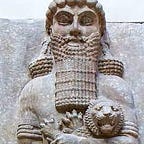Sirius: A Beacon in the Sky for Ancient Civilizations
Sirius, the brightest star in the night sky, has been observed and revered by humans for centuries. Its prominence and unique characteristics have made it a mysterious and intriguing object, holding immense significance in many ancient cultures.
Sirius in Egyptian Culture:
For the Egyptians, Sirius was intimately linked to the annual flooding of the Nile River, an event crucial to their agricultural cycle. The heliacal rising of Sirius, its emergence just before dawn, coincided with the commencement of the inundation. This alignment led the Egyptians to associate Sirius with the goddess Isis, a deity representing life, fertility, and healing. Temples and monuments were erected in Sirius’s honor, and numerous statues and paintings depicted the star.
Sirius in Greek Culture:
The Greeks held Sirius in high esteem as well, naming it “Kyón,” meaning “Dog Star.” They associated Sirius with Orion’s canine companion and often linked its celestial movements to significant events. Notably, the Trojan War’s outbreak was believed to coincide with Sirius’s rising.
Sirius in Other Cultures:
Beyond Egypt and Greece, Sirius held prominence in various cultures worldwide. The Romans referred to it as “Canis Major” (Greater Dog), while the Maya associated it with their rain god. In Polynesian societies, Sirius served as a crucial navigational guide and was considered the most important star in the sky.
Reasons for Sirius’s Significance:
Several factors contributed to Sirius’s profound importance in ancient civilizations:
- Brightness: Sirius’s brilliance as the night sky’s most luminous star made it impossible to ignore.
- Regular Rising: Sirius’s predictable appearance at consistent times facilitated its use in timekeeping and agricultural planning.
- Celestial Position: Sirius’s location near the constellation Orion, depicting a prominent hunter figure, further enhanced its significance.
- Mythological Associations: Sirius’s connection to deities and divine beings imbued it with sacredness and reverence.
Sirius’s Enduring Allure:
Sirius continues to captivate humanity, its enigmatic nature and celestial beauty resonating through the ages. Its prominence in ancient civilizations serves as a testament to humanity’s enduring fascination with the cosmos and the profound impact celestial bodies have had on our cultural and spiritual understanding of the world.
Additional Notes:
- The name “Sirius” originates from the Arabic word “Al-Siriu,” meaning “shining.”
- Sirius lies approximately 8.6 light-years from Earth.
- Despite its brightness, Sirius is cooler than the Sun.
- A disk of dust and gas is thought to encircle Sirius.
- Some believe Sirius could harbor an extraterrestrial life-supporting system.
